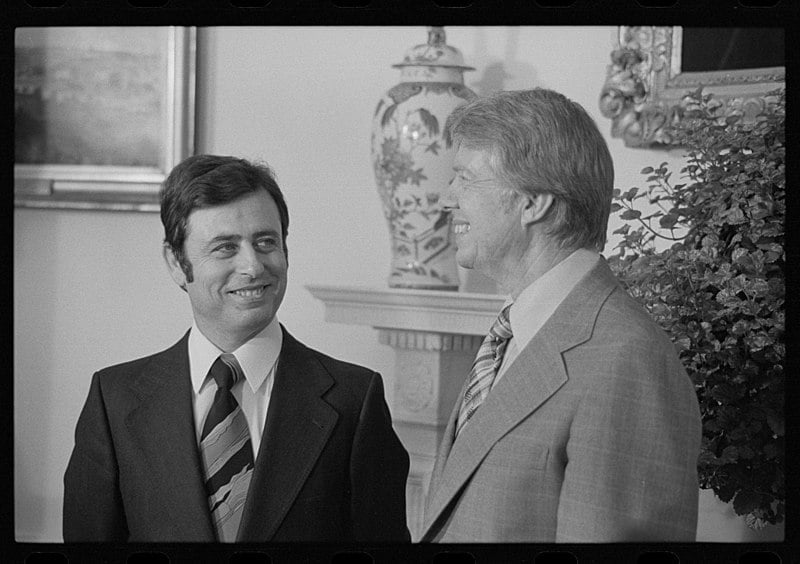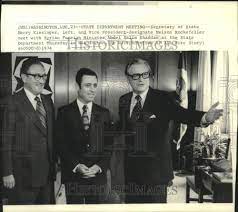Foreign Minister Abdel Halim Khaddam of Syria arrived today for talks with Secretary of State Kissinger that American officials hope will clarify Syria’s intentions, viewed ominously in Israel and with some disquiet here.
In recent weeks, Israeli offidals, concerned about largescale Soviet arms shipments to Syria, have warned that Damascus may he contemplating another offensive on the Golan Heights, without waiting for negotiated Middle East settlement.
They have expressed particular concern that when the six‐month mandate for United Nations buffer zone forces between Israel and Syria expires in November, Syria will not agree to a renewal.
American officials, while also apprehensive about the buildup, have so far taken the position privately that Syria was not necessarily committed to military action, and that if diplomatic momentum can be continued, there was little likelihood of renewed fighting.
Some American officials were encouraged by a statement issued in Damascus yesterday on the departure of Mr, Khaddam, who is regarded as a leader of the radical wing of the ruling Baath party in Syria, He said that Syria “finds it necessary for the efforts aimed at establishing peace to continue and appredates the importance of the efforts being exerted within this framework.”
“Therefore,” he added, it is natural that Syria sees the great importance in giving these efforts the adequate opportunity and time to work. Within this framework we shall give these efforts adequate time in the hope of achieving a just peace in the area.”
Step‐by‐Step Approach
The stress on “adequate time” was regarded here as signal that the Syrians were willing to continue the “stepby‐step” approach advocated by Mr. Kissinger, and the Egyptians, Israelis and Jordanians.
Mr. Khaddam, the highestranking Syrian official to visit Washington, was prominent in the May disengagement negotiations conducted by Mr. Kissinger between Israel and Syria. The Americans regarded him as much tougher and less conciliatory than President Hafez al‐Assad.
A major problem facing Mr. Kissinger is the direction of the next diplomatic moves in the Middle East. In recent weeks, has been host to Foreign Minister Yigal Allon of Israel, Xing Hussein and Premier Zaid al‐Rifal of Jordan, and Foreign Minister Ismail Fahmy oft Egypt. Nest week he will have talks with Foreign Minister Omar Saqqaf of Saudi Arabia.
The Americans have been trying to ascertain whether there would be an Arab consensus for the next round of talks to be between Israel and Egypt for a further settlement in Sinai, or between Israel and Jordan for an accord on the West Bank of the Jordan River, which the Jordanians are strongly urging.
The Arabs have not been able Ito agree among themselves, and when Mr. Khaddam begins talks tomorrow at the State Department, he will be asked Syria’s opinion.
The question has been complicated by recent signs of strain in Israeli‐Ameircan relations. The Israelis, who prefer to deal with the Egyptians, but have said they were open to talks with the Jordanians, have been irritated by certain American actions. “In summary,” one Israeli said today, “the United States takes us for granted and treats the Arabs as special friends.”
The Israeli Government of Premier Yitzhak Rabin was annoyed when Mr. Kissinger, at a news conference on Monday, disclosed that the United States had invited Mr. Rabin to come to Washington early next month to consult on the next step in the talks.
A Sensitive Issue
Since the question of negotiations has become a highly sensitive political issue in Israel, Mr. Kissinger’s statement gave the appearance of pressure from Washington. The invitation had been extended only last Friday when Ambassador Simcha Dinitz met with Mr: Kissinger and it had, not been made known to the Israeli Cabinet.



